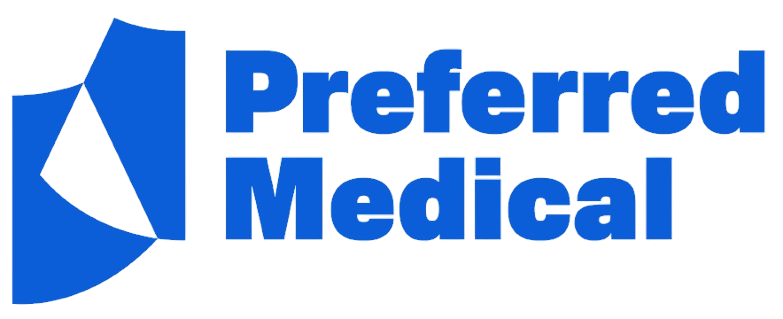The Top Questions to Ask Your Vendor When Shopping for an Ultrasound Machine
Introduction
Purchasing an ultrasound system is one of the most significant investments a medical professional or healthcare facility can make. Whether you’re an OB/GYN, maternal-fetal medicine specialist, radiologist, primary care provider, or veterinarian, the right ultrasound solution can transform your ability to diagnose, treat, and care for patients. The wrong choice, however, can lead to unnecessary costs, workflow bottlenecks, or even compromised clinical confidence.
Having spent decades consulting with clinicians on imaging purchases, I’ve learned that successful acquisitions all start with asking the right questions. These questions go beyond the glossy brochures and focus instead on your clinical needs, operational workflows, financial goals, and long-term support.
Below, I’ll walk through the top questions every healthcare professional should ask a vendor before committing to an ultrasound machine.
1. “What clinical applications is this system optimized for?”
Every specialty has unique imaging needs. An OB/GYN practice may prioritize 3D/4D fetal imaging and Doppler vascular studies, while an anesthesiologist might value portability and needle visualization for point-of-care procedures. A veterinary hospital may need presets for small animal cardiac imaging and large animal abdominal scans.
Ask your vendor to explain, in detail, which applications the system was designed for and how it compares to alternatives in your specialty. Request a live demonstration with the types of scans you perform daily. This ensures the system is not just clinically capable but clinically relevant to your practice.
2. “How does this system improve workflow and efficiency?”
Ultrasound technology has advanced well beyond image quality alone. Today’s best systems also incorporate automation and workflow tools that save you time, reduce repetitive tasks, and standardize imaging protocols.
Some features to ask about include:
- Auto-measurements for OB, vascular, or cardiac exams
- Customizable presets for rapid scanning
- Fast boot-up times for point-of-care settings
- Touchscreen interfaces for simplified operation
- Remote connectivity for telemedicine or image sharing
A few saved minutes per scan may not seem significant, but across dozens of patients a week, workflow efficiencies translate into better throughput, less staff fatigue, and a stronger patient experience.
3. “What is the learning curve, and what training is included?”
Even the most advanced machine is only as good as the operator behind it. A system with a steep learning curve can stall adoption and frustrate staff. Ask your vendor:
- What training do you provide? (On-site? Virtual? Both?)
- Is training included in the purchase price, or does it cost extra?
- Do you offer ongoing training for new staff or advanced applications?
Preferred Medical, for example, always includes personalized clinical training with new systems and can return for additional sessions as your practice grows. You should expect nothing less from any vendor you’re considering.
4. “What warranty and service coverage come with this machine?”
One of the most overlooked aspects of equipment purchasing is service. Ultrasound downtime directly impacts patient care and practice revenue. That’s why warranty coverage and service responsiveness are crucial.
Here’s what to clarify:
- Warranty length and scope – Is it parts-only, or does it cover probes and labor?
- Service network – Are technicians local and certified on your system?
- Response times – How quickly will service be dispatched if your system goes down?
- Loaner equipment – Is it available if repairs take longer?
For instance, Philips-backed warranties often provide five years of coverage, while some vendors may only offer one year. Knowing this up front helps you compare not just machines, but the true cost of ownership.
5. “What financing or acquisition options are available?”
Healthcare practices today need flexibility. While some facilities prefer to purchase equipment outright, others benefit from leasing, demo programs, or certified pre-owned systems. A knowledgeable vendor should walk you through all available paths, explaining the pros and cons of each based on your financial and operational goals.
Don’t hesitate to ask:
- Are lease-to-own or trade-in programs available?
- Do you offer pre-owned systems with warranties?
- Can you provide a demo unit before full commitment?
These options can make cutting-edge imaging more accessible and reduce financial strain on your practice.
6. “What differentiates this system from competitors in the same class?”
It’s one thing to know a machine’s features. It’s another to understand how it stacks up against alternatives. Ask your vendor for direct comparisons with other leading models in the same clinical class.
For example, if you’re evaluating a premium OB/GYN system, you should understand not just the resolution of its 3D/4D imaging, but how its workflow tools, service backing, and warranty compare to others. Vendors who truly know their products (and the market) will provide transparent comparisons instead of vague claims.
7. “What probes are included, and what additional options are available?”
Probes (transducers) are the true frontline tools of ultrasound. A system might support dozens of probe options, but your specialty likely requires just a few key types. Confirm:
- Which probes are included in the base package
- Costs of additional or specialty probes
- Availability of transducers for niche studies (e.g., pediatric cardiac, veterinary reproductive)
- Expected probe lifespan and warranty coverage
Probes are also one of the most common failure points. Ensure that both quality and service coverage are part of your decision-making process.
8. “How does this system integrate with my existing IT infrastructure?”
In today’s healthcare environment, seamless data flow is just as important as image quality. Ultrasound images must integrate smoothly with EMRs, PACS, and other clinical systems to ensure patient data accuracy and accessibility.
Ask vendors:
- Does this system support DICOM connectivity?
- Is it compatible with my current PACS/EMR system?
- Can images be transferred securely for teleradiology or remote consultation?
- Does the vendor provide IT support during installation and upgrades?
Smooth integration reduces administrative burden and ensures your imaging investment enhances—not complicates—your workflow.
9. “What ongoing costs should I expect?”
The sticker price is just the beginning. Beyond acquisition, you’ll need to consider:
- Preventive maintenance costs
- Software upgrades
- Probe replacements
- Extended warranty or service agreements
A trustworthy vendor will outline the total cost of ownership rather than focusing solely on the initial purchase price. This transparency helps you plan financially and avoid surprises down the road.
10. “Can you provide references from similar practices?”
Finally, one of the most valuable sources of insight is other clinicians who’ve purchased the same system. Ask your vendor to connect you with references in your specialty. Speaking directly to peers provides candid feedback about real-world performance, service quality, and vendor reliability.
If a vendor hesitates to provide references, consider it a red flag. Confident vendors are proud to let their clients speak for them.
Final Thoughts
Buying an ultrasound machine is not just about acquiring hardware—it’s about partnering with a vendor who understands your clinical needs, supports your workflow, and stands behind their equipment long-term. By asking the right questions, you’ll not only choose the best machine but also ensure your practice receives the training, service, and support it deserves.
At Preferred Medical, we’ve guided clinicians across specialties for more than 35 years. Our consultative approach ensures that every client finds the right imaging solution—not just for today, but for the future growth of their practice.
If you’re evaluating ultrasound options and would like to schedule a personalized consultation, call us at (866) 492-1313 or visit pref-med.com.

Leading Women’s Health Providers in Houston, TX: Advancing Imaging Innovation Across Southeast Texas










